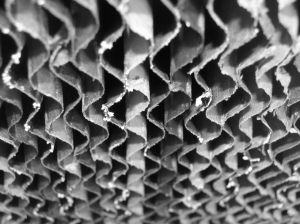Invented in WWII, High Efficiency Particulate Air filters were used in laboratories to prevent harmful radioactive particles from escaping. Commonly known as HEPA filters, these can be found in not just air filtration systems but also in vacuum cleaners. The filter itself is a mesh of randomly arranged fiberglass fibers that trap large particles as well as microscopic ones. Having a HEPA filtered vacuum can greatly improve indoor air quality thus relieving allergy and asthma irritation. Knowing the facts behind the HEPA filters and their efficiency will come in handy when purchasing your next vacuum cleaner or air filter.
 Traditionally vacuum filters act like a sieve where particles that are smaller than the largest opening can pass through; HEPA vacuums do not. They are designed to trap the smallest pollutants as air is forced through a fine mesh by isolating particles that will then cling to the individual fibers. In order for a filter to be qualified as a HEPA it needs to remove 99.97% of all particles greater than 0.3 microns. When compared to a dust mite, which is 5 microns and a human hair which is 40 microns, you can visualize just how small of particles a HEPA filter collects. Equivalent to one-thousandth of a millimeter, these particles must be filtered out of the vacuum’s exhaust according to government standards.
Traditionally vacuum filters act like a sieve where particles that are smaller than the largest opening can pass through; HEPA vacuums do not. They are designed to trap the smallest pollutants as air is forced through a fine mesh by isolating particles that will then cling to the individual fibers. In order for a filter to be qualified as a HEPA it needs to remove 99.97% of all particles greater than 0.3 microns. When compared to a dust mite, which is 5 microns and a human hair which is 40 microns, you can visualize just how small of particles a HEPA filter collects. Equivalent to one-thousandth of a millimeter, these particles must be filtered out of the vacuum’s exhaust according to government standards.
With many imitation HEPA filters on the market, there are important factors to keep in mind to help ensure the filter you purchase is a true HEPA. For starters, a true or absolute HEPA must pass a test and the results will be printed on the filter itself. The test results must be at 0.3 microns which means it filters out the government standard of 99.97%. Some vacuums are labeled HEPA type filter- these are not the real deal because they do not have to pass a performance test. Similar in build, these HEPA type filters are less expensive and less effective; most often they only filter out 85-90% of particles. Another factor to check is the MERV rating. Minimum Efficiency Reporting Value is an evaluation system that rates a filter’s ability to remove particles from the air based on a scale of 1-20. The higher the number the better; high ratings means that it removes smaller particles and more particles.
In order for a vacuum cleaner to have an effective HEPA filtration system, the unit must be sealed. This means that there is no air flow around the filter therefore forcing all of it through the mesh and trapping the maximum amount of particles. If the unit is 100% sealed, it prevents large amounts of particles from re-entering the surrounding air. HEPA filters are designed to trap substantial amounts of dust particles from their return air flow preventing fewer microbic dust fragments from escaping in the exhaust.
 By preventing the emission of infinitesimal impurities and other contaminates back into the air we breathe, HEPA filters prove to be beneficial for use in the home and office. Conventional vacuums do not sufficiently trap dust particles and they expel minute air pollutants back in to the air we breathe. Switching from traditional filters to HEPA filters greatly improves indoor air quality and helps prevent flare ups to those who suffer from allergies or asthma symptoms. HEPA filters can help eliminate dust, smoke, mold, bacteria, and pollen.
By preventing the emission of infinitesimal impurities and other contaminates back into the air we breathe, HEPA filters prove to be beneficial for use in the home and office. Conventional vacuums do not sufficiently trap dust particles and they expel minute air pollutants back in to the air we breathe. Switching from traditional filters to HEPA filters greatly improves indoor air quality and helps prevent flare ups to those who suffer from allergies or asthma symptoms. HEPA filters can help eliminate dust, smoke, mold, bacteria, and pollen.
If you need help eliminating dust in your office, call Envision Commercial Cleaning today for your free quote! Let us help improve your indoor air quality!
Leave a Reply